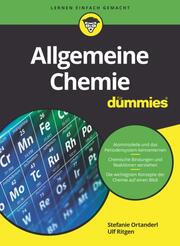The Eco-Friendly and Promoting Influence of Nitric Acid-Steam Vapors on the Oxidation of C3-C4 Parrafins into Methanol (kartoniertes Buch)
The Eco-Friendly and Promoting Influence of Nitric Acid-Steam Vapors on the Oxidation of C3-C4 Parrafins into Methanol
Auch verfügbar als:
Bibliographische Informationen
Beschreibung
Document from the year 2015 in the subject Chemistry - Materials Chemistry, , language: English, abstract: The catalytic conversion of light alkane feedstock is one of the promising industrial routes to prepare valuable chemical products: owing to its use in car and gas turbine engines, heaters, incinerators, and hydrocracking furnaces. Although the combustion of hydrocarbon fuels appears to be conceptually simple; the details of how alkane conversion to carbon dioxide and water occurs with concomitant release of energy, are enormously complex. Without timely and effective measures to mitigate the adverse impacts of greenhouse gases emission, the living environment of the world will continue to deteriorate and become increasingly unbearable. On that ground, the development of technological methods for methanol production via alkane conversion in a manner that is energy-conserving, inexpensive, environmentally-sustainable, and least-damaging to human health & welfare are of crucial importance. The applied method in this work contributes to these objectives. It is well known that in the petroleum refining process, a substantial amount of C3¿C4 fraction (existing as a mixture rather than individual component), is primarily recovered from crude oil distillation and by cracking of heavy molecules: bulk of which is flared as hydrocarbon fuel into the atmosphere through refinery furnace. On that ground, owing to the higher chemical reactivities of propane and butane, in comparison to methane, the use of C3¿C4 hydrocarbon mixtures has been investigated as an alternative feedstock for methanol production, which apparently, to a large extent, is an important aspect of chemical technology and economics. The present work evaluates the theoretical concepts, quantum chemical calculations, and experimental investigations to explore novel pathways for the direct oxidation of propane and butane fraction to methanol using a photochemical reactor. To test the validity of the mechanism, the photochemical oxidation of C3¿C4 gas fraction was investigated under three experimental phases under mild reaction conditions at a temperature (T = 100°C), at a pressure (P = 1 atm.), and at reaction times (tr) within 5 ¿ 120mins (a) without exposure to irradiation, (b) with exposure to visible light irradiation at a wavelength region (¿ = 420 nm), (c) with exposure to visible light irradiation at a wavelength region (¿ = 420 nm) under the auto-catalytic influence of nitric acid vapor. The oxidation products obtained are methanol, as well as ethylene and propylene (very important star
Autorenportrait
Weitere Artikel aus der Kategorie "Chemie/Allgemeines, Lexika"
Neuerscheinung

Lieferbar innerhalb 24 Stunden

Lieferbar innerhalb 24 Stunden

Lieferbar innerhalb 24 Stunden






